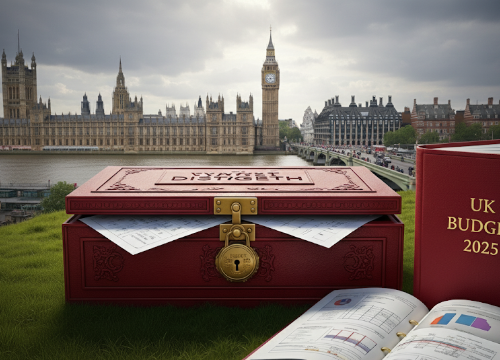
If you would like to know more about Clever Accounts, please contact us on 0113 518 8800

The Treasury has announced that the Autumn Budget 2025 will be delivered on the 26th November 2025. The Autumn Budget is a significant event in the nation's financial calendar that will have implications for businesses and individuals alike. This year's Budget, now confirmed for a later date than usual, is particularly noteworthy given the current economic climate and the government's fiscal priorities.
The Autumn Budget 2025 is now confirmed for Wednesday 26th November 2025. This date has been officially announced by the Treasury on Tuesday 3rd September 2025. The statement will be delivered by the Chancellor of the Exchequer Rachel Reeves, following Prime Minister's Questions.
The timing of this year's Budget is largely a result of the recent general election on 4th July 2024. The new government is taking on the significant task of a spending review to set departmental budgets for the coming years. This process is complex and takes time, and holding the Budget later in the autumn provides the government with the necessary time to carefully consider its spending plans and policy changes. The decision to have a single major fiscal event each year also contributes to this later timing, providing greater stability and certainty for businesses and families. The Chancellor must also provide the independent Office for Budget Responsibility (OBR) with 10 weeks' notice to prepare its economic and public finance forecasts.
The UK Budget serves as the government's annual financial blueprint, presented to the House of Commons by the Chancellor of the Exchequer. It outlines the nation's fiscal health and proposes key changes to both taxation and public spending. The Budget details how the government intends to generate revenue, primarily through taxes like income tax, National Insurance, and VAT, while also setting out how these funds will be allocated across essential public services such as the NHS, education, and defence. The plan is grounded in economic forecasts provided by the independent Office for Budget Responsibility, which offers a comprehensive analysis of the UK's economic health and future outlook.
Ultimately, the Budget is a pivotal event that shapes the country's economic and financial trajectory. It's the mechanism through which the government strives to balance its finances, ensuring that it raises enough money to meet its spending commitments. Importantly, the proposals announced during the Budget are not immediately implemented as law; they must first undergo a parliamentary process and be passed as a Finance Bill. This ensures that the government's tax and spending policies, which significantly impact businesses and individuals, are subject to proper debate and legislative approval.
While the details of the Budget are still under wraps and nearly three months away, various sources and political commentary suggest several key areas for potential announcements, please take with a pinch of salt though, at this early stage:
Business Rates: The government has previously stated its intention to introduce permanently lower tax rates for retail, hospitality, and leisure properties from 2026-27. We may see further details on the long-term overhaul of the business rates system, with a potential shift in the tax burden towards large online warehouses to support high streets.
Taxation and Levies: Expect announcements aimed at raising revenue. Potential measures include:
Fuel Duty: The current freeze on fuel duty is set to expire in March 2026. There's growing pressure to end this freeze and increase the levy in line with inflation, which could impact transportation costs for businesses and individuals.
Vaping Duty: A new excise duty on vaping products is set to be introduced from 1st October 2026. The Budget may provide more clarity on the rates and implementation of this new tax.
Wealth and Non-Dom Tax: The government is pushing ahead with its abolition of the non-dom tax status. While the initial fears of an "exodus" have been somewhat allayed, we may see further details on the new rules. A broader "wealth tax" on high-value assets has also been floated as a possibility, although its inclusion remains uncertain.
Pensions and Savings: The government has made it clear it wants to encourage more people to invest. Therefore, a review of Individual Savings Accounts (ISAs) is underway, and we could see changes to the overall limits or the balance between cash and stocks and shares ISAs. There is also speculation about potential changes to tax-free cash from pensions or the scaling back of "salary sacrifice" arrangements.
We will be closely following the Budget as it unfolds and will provide a detailed breakdown of all the key announcements and their implications for you and your business. We are on hand to offer advice and support to help you plan for any changes.
Sign up to Clever Accounts and get fixed fee hassle-free accounting